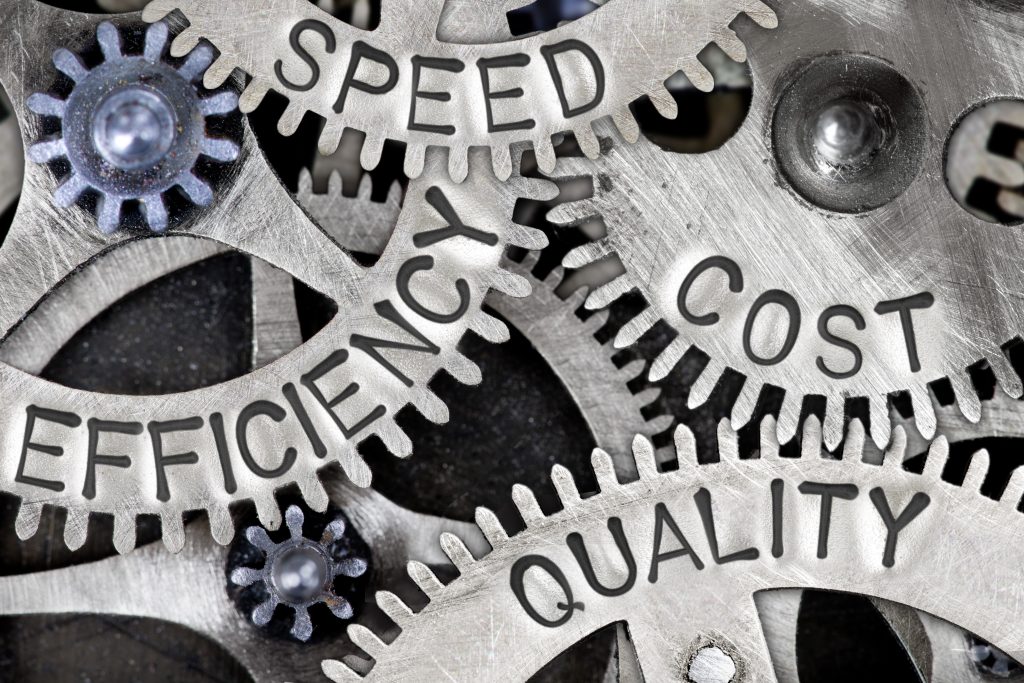
The Hidden Costs of Poor Material Handling–and How AirSweep Can Help
Bridging, ratholing and other material blocks can have a huge impact on your bottom line. When material doesn’t flow, production stalls and you spend time and money fixing the problem. You also compromise your product safety and quality–and even your business reputation.
That’s why poor material handling should be taken seriously. While it’s true that many materials have challenging flow properties, and it’s “natural” for these to settle during storage or cling to vessel walls, you need to get a reliable flow aid.
Don’t think of flow aids as an expense, but as insurance and investment that prevents bigger, more expensive problems. Here are the hidden costs of poor material handling.
Cost of downtime
Profitability depends on productivity. However, bridging and ratholing in any vessel causes bottlenecks and affects all downstream processes. You may even have to pull workers from other parts of the plant to help clear material blocks–or, equally expensive, pay them to sit around and wait for material to flow properly.
A cement company in Asia, which had to deal with shale clogging the silos, estimated that it lost $12,000 for every hour of downtime. For other companies in countries with higher costs of labor, this figure can be even higher.
Cost of spoiled material
When materials get trapped due to poor material handling, the time and conditions can lead to spoilage, particularly in the case of perishable goods. Compromised batches also need to be thrown away.
When this occurs, you don’t just lose the value of the wasted material itself but also the opportunity cost. Resources and time spent on producing, transporting, and storing these materials go down the drain.
A commercial bakery that had issues of flax bridging in the discharge had to throw away up to 40 bags of wasted material a day and even had to pay to have it hauled away. For a local business, this had a significant impact on their profit margins.
Risk of spoiled products and product recalls
Poor material handling is even more dangerous for the food and pharmaceutical industry, which follows strict regulations on product safety. If a product is spoiled, contaminated, or contains any ingredients that are not declared on the label, then there’s a big risk of product recall.
The worst-case scenario is a product recall. According to Food Safety Magazine, direct costs can reach $10 million, not including litigation costs and lost sales and stock value.
The financial aftershocks could last much longer. One U.S. grocery supplier survey showed that after a large peanut butter recall, 3 out of 4 consumers stopped buying the product for over a year–and it took massive marketing and PR efforts to rebuild public trust.
Risk of safety hazards
Caked whey protein caused a fire in a cheese company’s baghouse. This illustrates how poor material handling can become a safety concern–especially when working with materials that are potentially flammable.
There are other safety risks, too. If workers have to manually clear material blocks, they can inhale powders and dusts, or become injured while climbing into vessels and wielding heavy tools.
If they become injured, companies have to shoulder medical fees and potential fines for asking workers to take on responsibilities that they are not specifically hired or trained to do.
AirSweep: trusted solution for poor material handling
AirSweep is a tested and proven system that virtually eliminates issues like bridging and ratholing. The nozzles deliver quick, powerful bursts of air across the material’s surface, breaking up clumps and ensuring a smooth flow.
Here’s why it’s a game-changer:
- Higher productivity. Reduce flushing/cleaning time between product runs
- Better product quality. Improve batch uniformity
- Lower maintenance costs. Prevent vibration, stress, or wear to container walls
- Lower energy costs. Uses less plant air and electricity than fluidizers, vibrators, air cannon, and other flow aids
- No material feedback. The patented nozzle design immediately reseals after every pulse, eliminating feedback. This means less damage to the system and pipes, less cleaning, and no risk of cross-contamination
- No noise. AirSweep runs with a soft, hissing sound
- No safety risks. Workers no longer have to climb into vessels or lift heavy hammers to clear material blocks.
AirSweep is the most powerful, cost-efficient, and safe solution for poor material handling. Read more about how it is used in every industry, and helped thousands of companies increase productivity and lower costs.
You can also contact AirSweep for a personal consultation and custom proposal.





Comments are closed